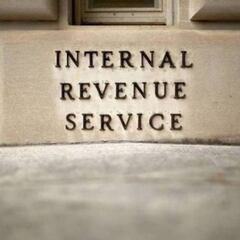Third stimulus check: do I have to pay taxes on it?
The $1,400 direct payments could be in your bank account this weekend, but many are still unsure about how the new stimulus checks will affect IRS tax returns.


On Thursday President Joe Biden signed into law the stimulus bill known as the American Rescue Plan, a cornerstone of his administration’s covid-19 response.
The $1.9 trillion package includes the long-awaited third stimulus checks, which will be worth up to $1,400 for each eligible American. Speaking to reporters yesterday, White House press secretary Jen Psaki said that they expect the first wave of payments to begin appearing in peoples’ bank accounts from this weekend onwards.
“People can expect to start seeing direct deposits hit their bank accounts as early as this weekend.”
— The Recount (@therecount) March 11, 2021
— WH Press Sec. Jen Psaki on COVID relief stimulus checks pic.twitter.com/W7GpgODaXo
The distribution of the payments will be overseen by the IRS, who are also administrating the tax filing process for 2020 tax returns at the moment. But with millions of Americans still to submit their filing, many are wondering if they need to pay tax on the upcoming stimulus check payments.
Do I need to pay taxes on stimulus checks?
Thankfully the stimulus checks, or Economic Impact Payments as they are referred to by the IRS, do not count as taxable income so you will not have to pay any taxes on them.
Although they arrive in the form of one-off payments, they are actually a refundable tax credit which essentially just gives recipients an advance of a 2020 tax credit. This is why the IRS, the federal body usually tasked with administrating the tax system, is in charge of overseeing the process.
Given that the stimulus checks are designed to provide much-needed support for those who may be struggling with the economic consequences of the pandemic, it would make little sense for the federal government to then retrieve some of the money in the form of taxes.
Sen. Jon Ossoff: "0% of the tax credits or the stimulus checks go to the top 1%." pic.twitter.com/2JDThJI9Rj
— The Hill (@thehill) March 9, 2021
If you think you have still not received either of the first two stimulus check payments but you should have been eligible, you can actually get the missing money added to the tax refund on your 2020 tax returns.
For more information, check out our handy explainer: How to claim a missing stimulus check on your 2020 tax return.
Unemployment benefits will also be exempt from taxes
None of the stimulus checks have been subject to taxes, but in the past the additional unemployment benefits programmes introduced for the pandemic were. The federal government has provided weekly payments of up to $600 for Americans who had lost their jobs but the money received did count as taxable income.
However the new stimulus bill changes that and makes unemployment benefits received in 2020 exempt from taxation for the first time. Claimants who earn less than $150,000 per year will not be taxed on the first $10,200 of unemployment benefits that they received in 2020.
Related stories
It is thought that around 40 million Americans received some form of unemployment benefits last year. If you are yet to file your 2020 tax returns then you will not need to include unemployment benefits as taxable income.
Those who have already done so can use an amended tax return to correct tax returns that have already been submitted. This will allow recipients to reclaim tax erroneously paid on 2020 unemployment benefits.

